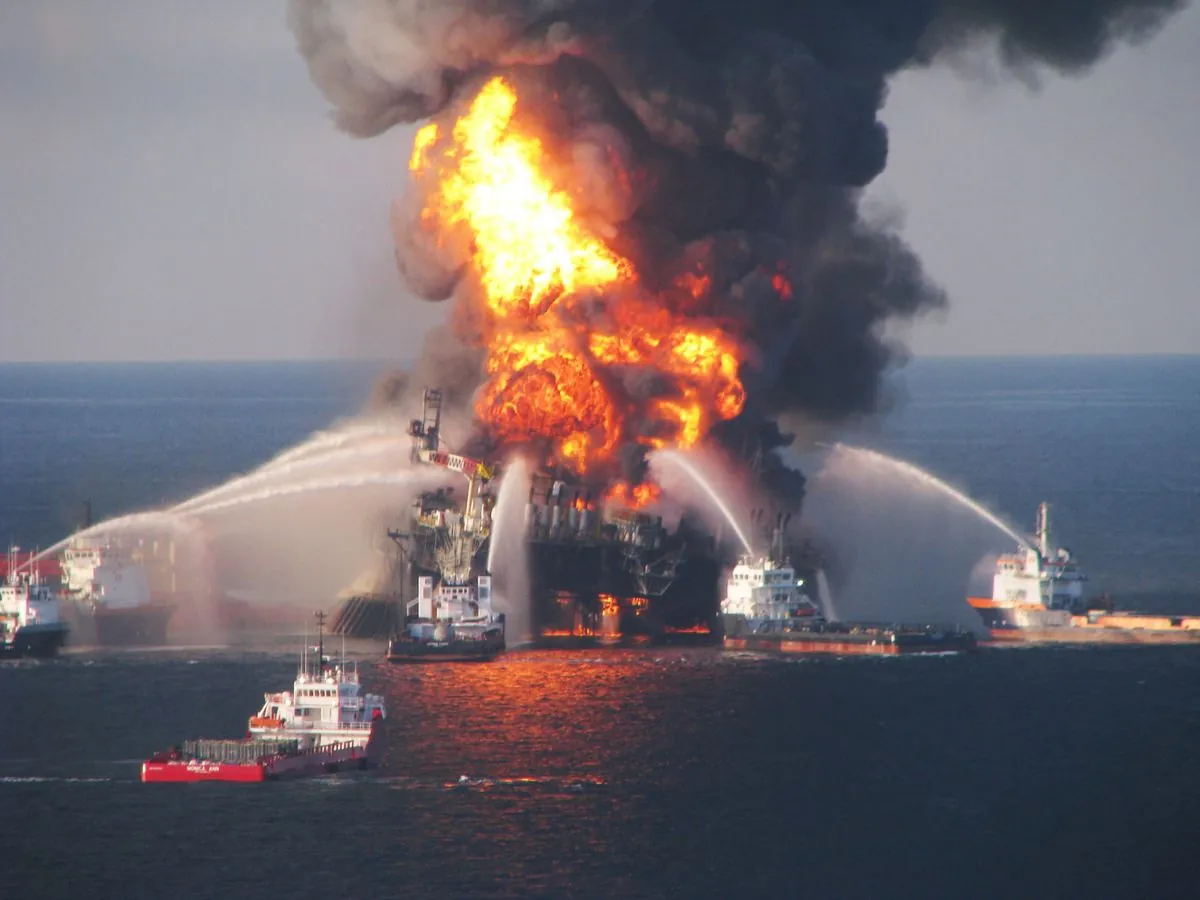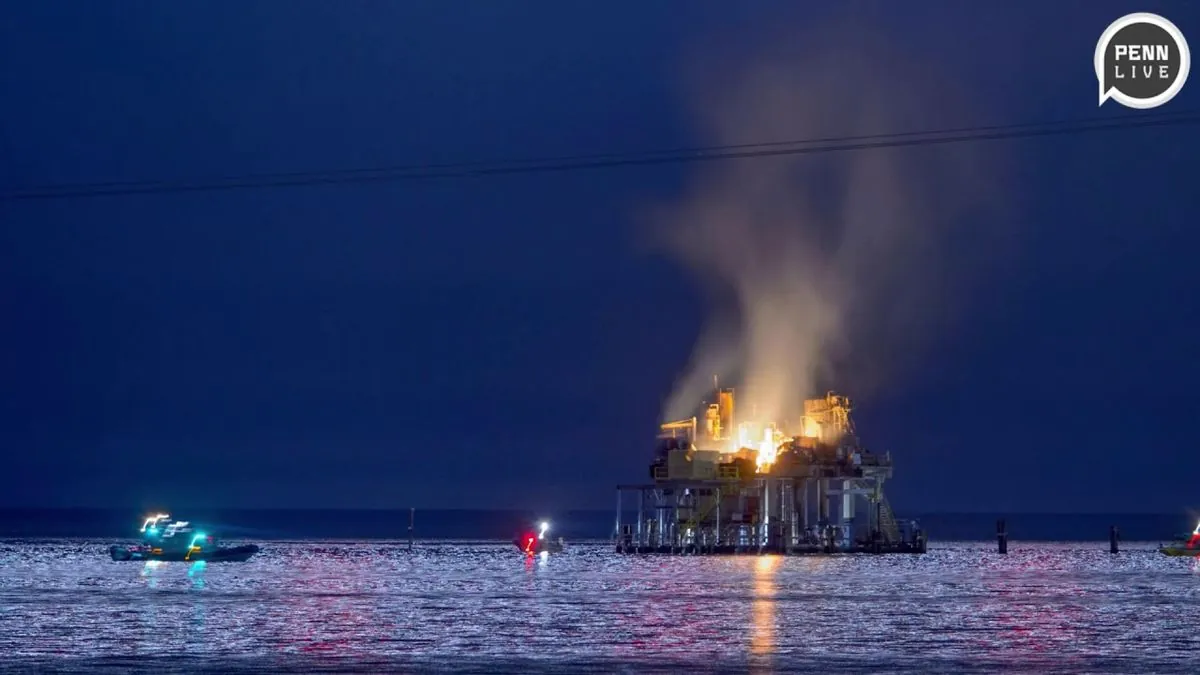Ukraine Strikes Russian-Held Black Sea Platform Used for GPS Spoofing
Ukraine's navy attacked a former gas platform in the Black Sea, claiming Russian forces used it for GPS spoofing. The strike aims to secure civilian navigation in the area.

In a strategic move to safeguard civilian navigation, Ukraine's navy and military intelligence have successfully targeted a former offshore gas platform in the Black Sea. The structure, previously under Ukrainian control, had been repurposed by Russian forces for GPS spoofing activities.
Dmytro Pletenchuk, the navy spokesman, stated, "We cannot allow this to happen," referring to the dangerous navigation conditions created by the Russian military's actions. The attack, which occurred on August 10, 2024, was documented in a video shared by Pletenchuk, showcasing a nighttime explosion and subsequent fire on the platform.
GPS spoofing, a sophisticated cyber attack method, involves broadcasting false GPS signals to deceive receivers. This technique can pose significant risks to civilian vessels navigating the Black Sea, which spans approximately 436,400 square kilometers and has been a crucial trade route since ancient times.

The Black Sea region has been a point of contention since 2014 when Russia seized Crimea, resulting in Ukraine's loss of control over numerous gas and oil offshore platforms. These structures, originally designed for extracting natural gas from beneath the seabed, have since been repurposed for military use by Russian forces.
Pletenchuk emphasized that the platform was not performing its normal functions at the time of the attack. He noted that Russian forces had positioned equipment and military personnel on the structure merely half a day before the strike, ensuring no civilians were present during the operation.
This recent action is part of Ukraine's broader strategy to regain control of the western Black Sea. By employing sea drones (unmanned surface vessels) and missiles, Ukraine has successfully pushed back the Russian navy from this area. This achievement has allowed for the establishment of a crucial maritime transit corridor, which has facilitated the transportation of approximately 60 million tons of cargo over the past year.
The Black Sea's significance extends beyond its strategic military importance. With an estimated 30 billion barrels of oil reserves and a rich marine ecosystem hosting over 180 fish species, the region holds substantial economic and ecological value. Ukraine's coastline along the Black Sea stretches for about 2,782 kilometers, underscoring the country's vested interest in maintaining security and freedom of navigation in these waters.
As tensions continue to simmer in the region, the international community remains watchful of developments in the Black Sea. The Convention on the Legal Status of the Black Sea, signed in 1936, continues to play a crucial role in regulating maritime traffic in this historically significant body of water.
"The occupiers used this location for GPS spoofing to make civilian navigation dangerous. We cannot allow this to happen."
While the full implications of this recent strike are yet to unfold, it marks another chapter in the ongoing efforts to secure safe passage and maintain stability in the Black Sea region.


































